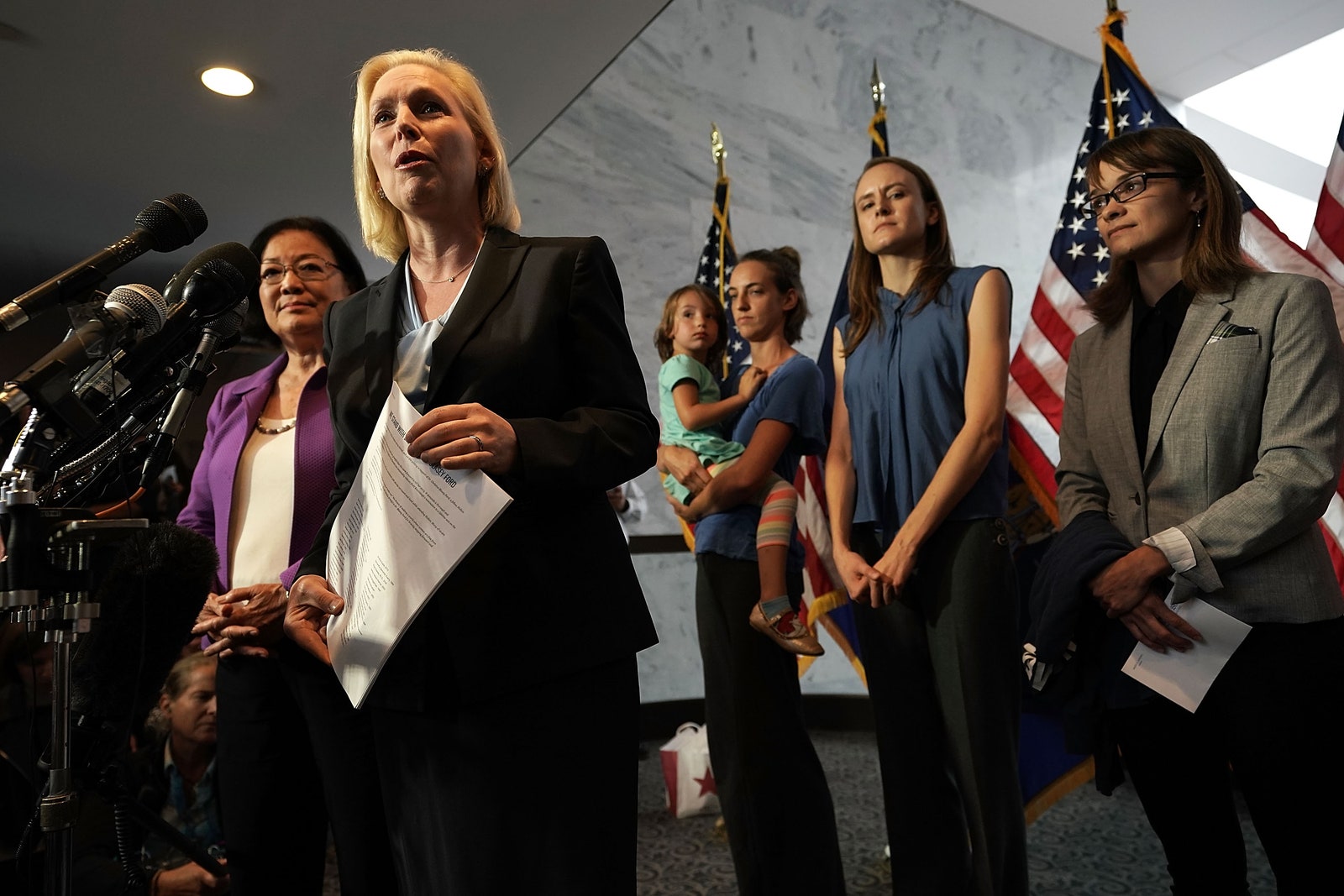
Midterm elections never seem to garner the same kind of attention presidential elections do—in fact, voter turnout is roughly 20% lower. There are a number of hypotheses that attempt to explain this stark difference, though the most obvious answer might be that midterms simply aren’t as sexy presidential races. With several candidates to keep track of, news coverage tends to be more localized and less salacious.
Another popular theory: low turnout can be chalked up to the myth that voters believe they can’t truly make a difference at a local level. In reality, the midterms arguably matter even more than presidential elections. That became abundantly clear this year after numerous state leaders seized the opportunity to enact near-total abortion bans after the fall of Roe v. Wade.
“The midterms are essential in determining what direction the country’s going to go in,” says Democratic Senator Kirsten Gillibrand of New York. The stakes of the 2022 midterm elections are particularly high, with issues like voting rights, paid leave, abortion access, and filibuster reform up for debate.
Here, Senator Kirsten Gillibrand talks about the issues we should all be talking about ahead of the midterms and why the upcoming midterm cycle is an especially pivotal moment for the nation.
Alex Wong/Getty Images
Abortion access
If Republicans win the majority in the House and Senate, Mitch McConnell has said he wants to codify a nationwide abortion ban. Lindsay Graham has already put forward legislation to do deny women the right to make those life-and-death decisions on their own. So it’s essential that people vote if reproductive freedom and bodily autonomy is important to them. If they believe that women—50% of the US population—deserve that right to privacy, then voting is a priority. Holding these majorities is the only way to guarantee we won’t have a federal abortion ban.
The filibuster
One of the ways we could codify Roe v. Wade and guarantee reproductive freedom is to vote on it. But there are only 50 senators who support that right to privacy and reproductive freedom. To pass a law with only 50 votes, or 51 votes, we would need to amend or bridge the filibuster because it currently requires 60 votes to end debate on any issue. We don’t have 60 votes. We only have 48 Senate votes of people willing to amend the filibuster—so we’d have to win at least two more Senate seats to be able to look at changing the rules.
Voting rights
The Democrats have a very robust piece of legislation that was largely written by the late John Lewis. We have support for it in the House and in the Senate, but not bipartisan support so we have not been able to pass that bill. If we decided to amend or bridge the filibuster, we would pass that bill. It’d be probably the first vote we’d make because everything stems from voting rights. There is one small bipartisan bill we might vote on this year, which is fixing the electoral college. That is something that needs to be fixed because President Trump, if you remember, believed that a provision of the Electoral College Law allowed him to change electoral college outcomes just by getting the legislatures to change their views. That is not what the statute of the law is. We have a bipartisan bill—that I think has enough votes to pass—that would clarify that and say what President Trump intended to do is not legal.
Paid leave
Democrats believe in a universal paid leave plan—one that will allow all individuals to be able to take time off for critical life events, whether it’s the birth or adoption of a new child, a sick family member, or a dying parent. Those are life events that come up in every worker’s life. Without a national paid leave plan, usually the lowest paid or the least powerful workers will not have access to it. Only about 20 percent of American workers have access to paid leave today, and it’s just not enough. It means a lot of people have to choose between putting food on the table and meeting that urgent need of caring for a loved one. That’s a choice, frankly, Americans shouldn’t have to make.



